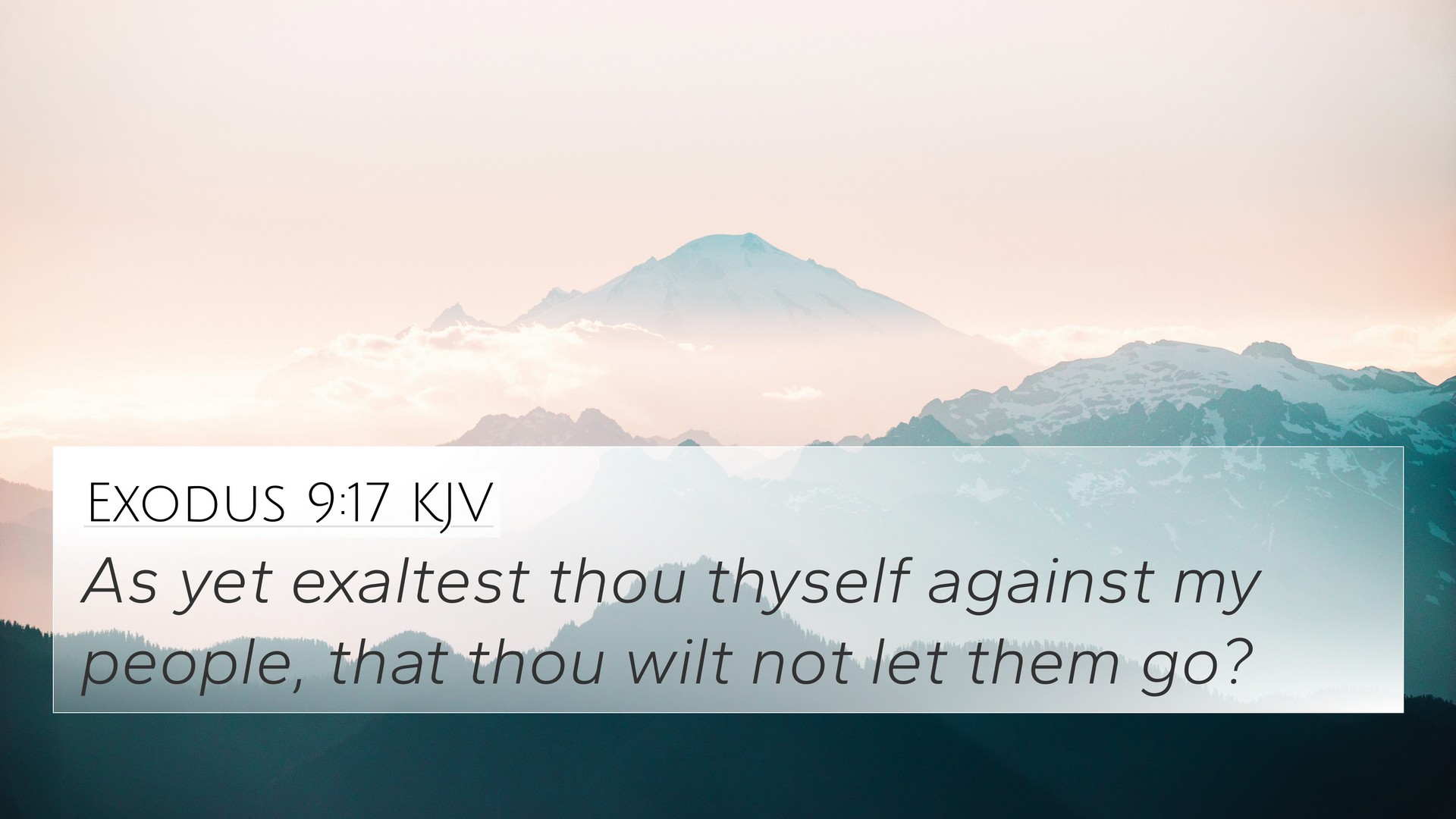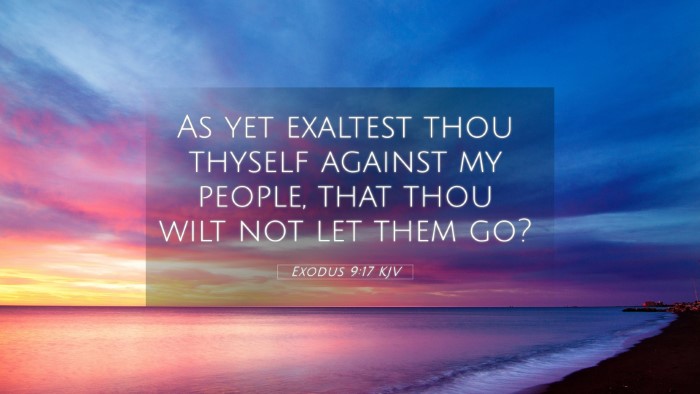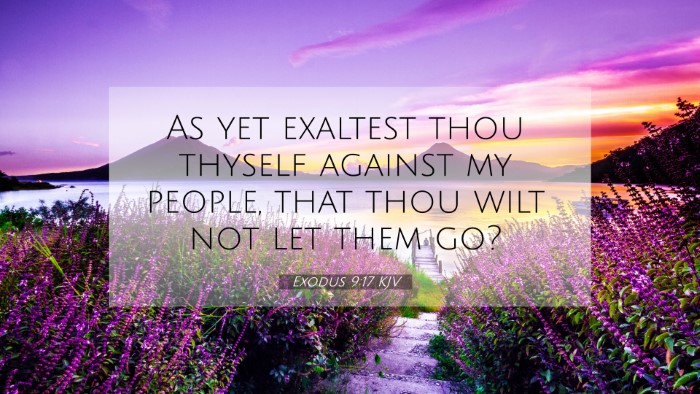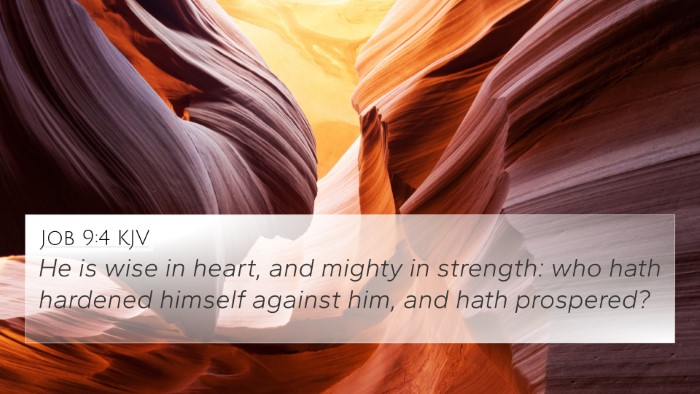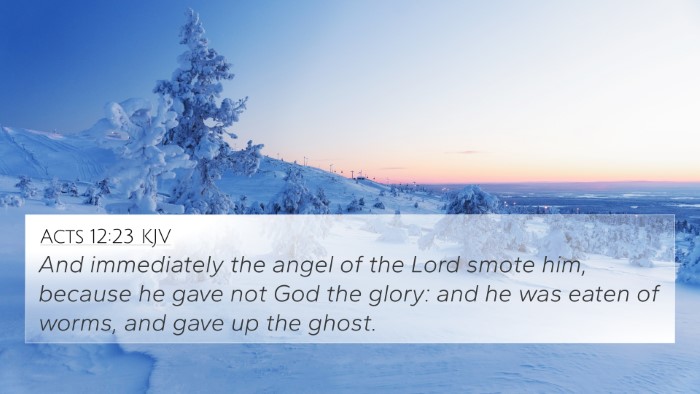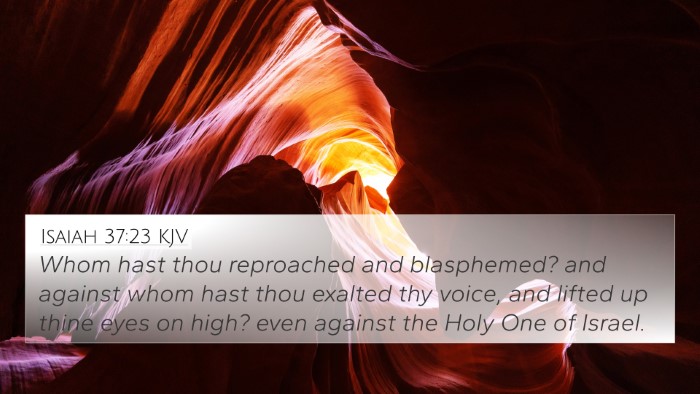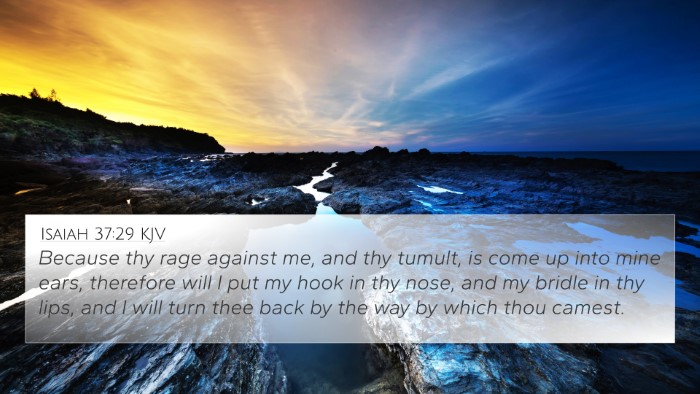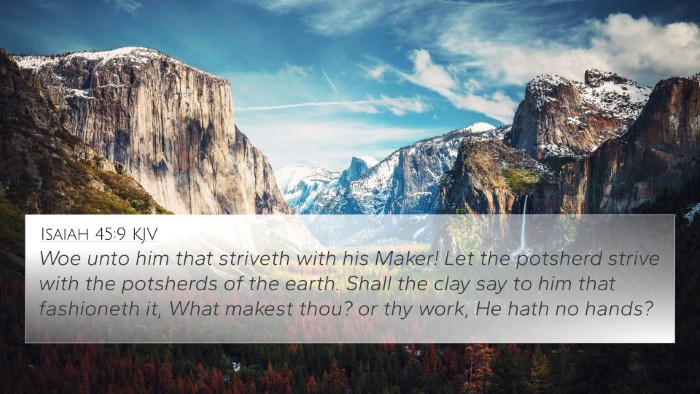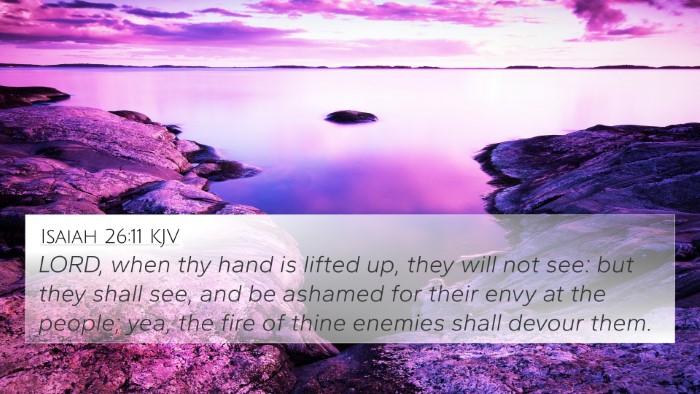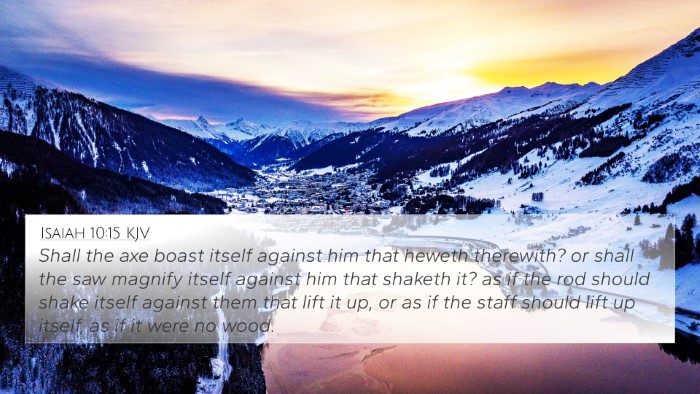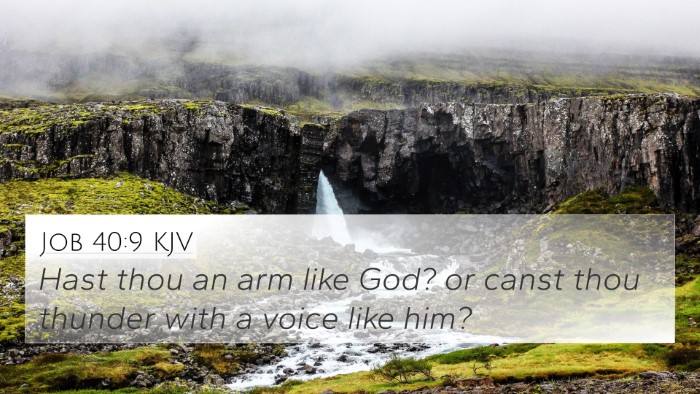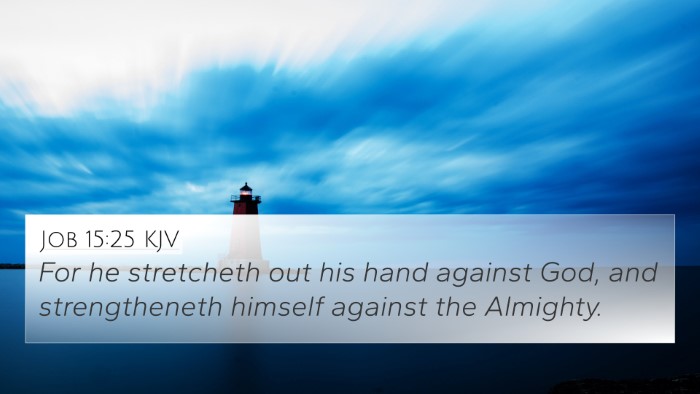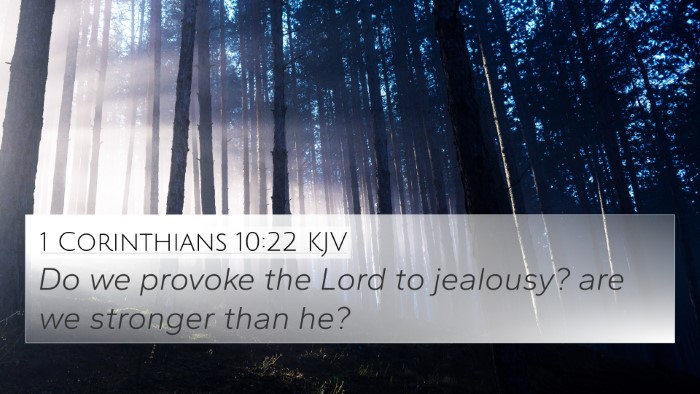Summary and Interpretation of Exodus 9:17
Bible Verse: Exodus 9:17 - "As yet exalted thou thyself against my people, that thou wilt not let them go."
Meaning and Context
This verse is part of the broader narrative of the plagues inflicted upon Egypt as a divine response to Pharaoh's persistent refusal to release the Israelites from bondage. It underscores the theme of divine sovereignty and human resistance to God's will.
Commentary Insights
- Matthew Henry: Henry emphasizes the pride of Pharaoh, who, despite witnessing the devastating plagues, continues to harden his heart. This pride leads to his eventual downfall, demonstrating how a relentless spirit against God's command invites judgment.
- Albert Barnes: Barnes notes that this statement highlights the obstinacy of Pharaoh's heart and illustrates the broader moral lesson on the dangers of pride. It invites reflection on how one's refusal to heed divine warnings can lead to severe consequences.
- Adam Clarke: Clarke provides additional insight into the cultural and historical significance of the verse, reflecting on Pharaoh's identity as a god-king in Egyptian society. His defiance against the God of Israel is a blatant act of rebellion that invokes God's righteous anger.
Thematic Connections and Cross-References
Exodus 9:17 establishes profound connections with numerous other biblical passages, offering rich thematic explorations of pride, judgment, and divine authority:
- Romans 9:17: "For the Scripture saith unto Pharaoh, Even for this same purpose have I raised thee up, that I might show my power in thee..." - This verse directly references Pharaoh's role in the divine narrative of salvation history.
- Proverbs 16:18: "Pride goeth before destruction, and a haughty spirit before a fall." - A reflection on the dangers of pride, echoing Pharaoh's plight.
- Isaiah 14:13-15: This passage discusses the fall of the proud, paralleling Pharaoh's ultimate fate.
- Exodus 5:2: "And Pharaoh said, Who is the LORD, that I should obey his voice..." - Illustrates Pharaoh's initial defiance and lack of recognition of God's authority.
- Psalm 18:27: "For thou wilt save the afflicted people; but wilt bring down high looks." - Affirms God's justice against the proud.
- Jeremiah 50:31: "Behold, I am against thee, O most proud..." - A clear warning against pride and arrogance as showcased in Pharaoh's character.
- Matthew 23:12: "And whosoever shall exalt himself shall be abased..." - Jesus' teaching mirrors the lesson seen in Pharaoh's lifestyle, emphasizing humility over pride.
Applications for Today's Readers
In a contemporary context, Exodus 9:17 serves as a powerful reminder of the importance of humility and obedience to divine instruction. The text invites readers to consider:
- How pride has impacted our decisions and relationships.
- The consequences of ignoring divine guidance in our lives.
- Reflecting on the broader themes of redemption and justice within the biblical narrative.
Tools for Bible Study and Cross-Referencing
For those looking to delve deeper into Exodus 9:17 and its connections with other biblical texts, employing tools such as a Bible concordance or a Bible cross-reference guide can be incredibly beneficial. These resources facilitate:
- Identifying connections between Old and New Testament themes.
- Engaging in cross-reference Bible study methods for a deeper understanding of scriptural contexts.
- Utilizing comprehensive Bible cross-reference materials to gather related verses and themes.
Conclusion
Exodus 9:17 serves not only as a historical account but as a timeless principle illustrating the interactions between divine authority and human pride. The insights drawn from the commentaries highlight the theological truths embedded within the text, guiding readers toward understanding the profound implications for faith and morality. As we explore the connections between various Bible verses, we uncover a rich tapestry of meaning that continues to resonate through the ages.
